The Dine After the Dash: Hunt Breakfast Memories
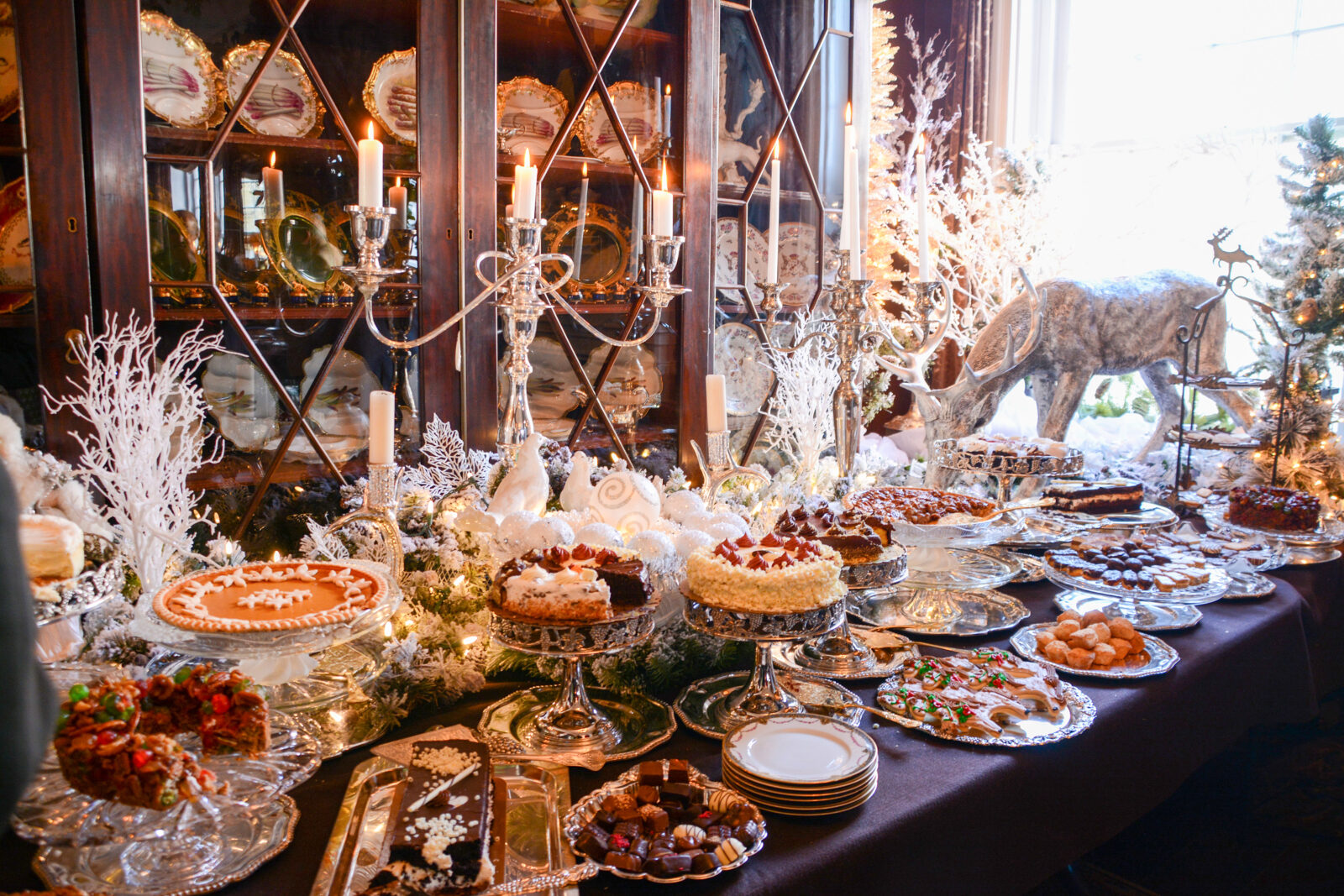
Written by Heidi Baumstark
In foxhunting circles, it is called “the dine after the dash.” Afterall, who wouldn’t be hungry after a morning of chasing a fox on horseback in the fresh country air?
The hunt breakfast is so named no matter what time of day the feast is served. Since hunts historically started with the rising of the sun, the first meal afterwards would be breakfast; hence, the hunt breakfast term stuck.
Here in Virginia, hunt breakfasts typically feature ham biscuits, stews, and desserts with equestrian and foxhunting themes. And of course, many hunts begin with the ritual of a stirrup cup – a bit of “liquid courage” – traditionally filled to the brim with Irish coffee, hot buttered rum or sherry; or, perhaps ginger brandy served to riders while their feet are already in the stirrups just before they leave for the hunt.
Saturday hunts are typically followed by the traditional hunt breakfast at the host’s property. Coming in from the field, riders peel off hunting coats trading them in for tweed hacking jackets, gather inside where it’s warm, and where food and drink are plentiful, to recount the drama of the hunt.
Recollections From Local Hunt Breakfast Hosts
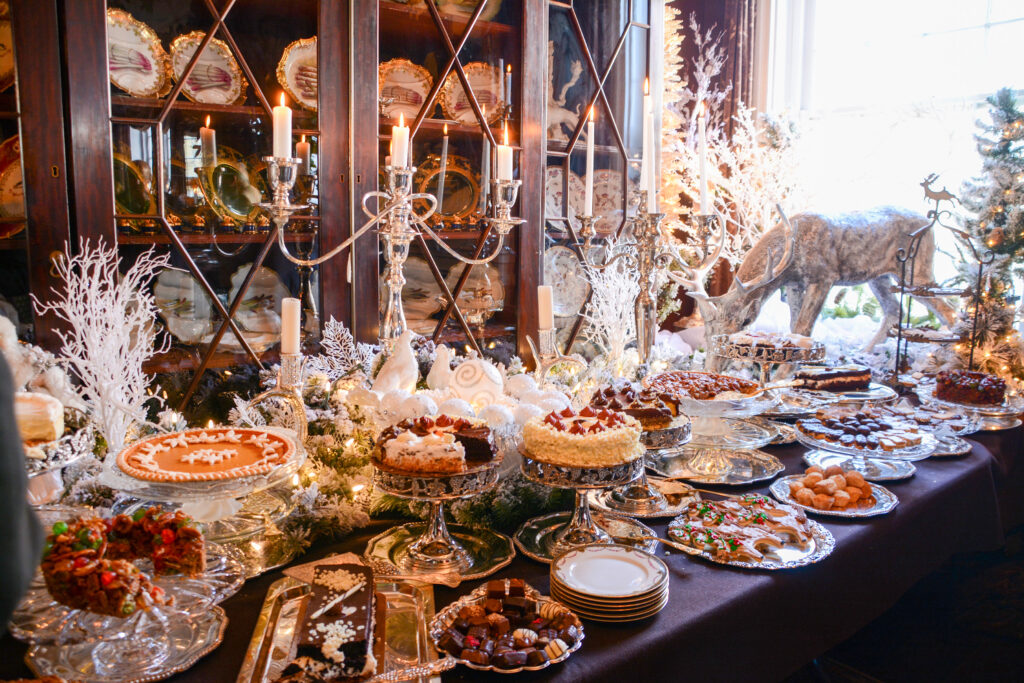
Zohar and Lisa Ben-Dov of Kinross Farm near Middleburg host a hunt breakfast the Saturday before Thanksgiving for Orange County Hounds (OCH), opening their property to fellow hunt enthusiasts, friends, and guests.
Kinross, a 500-acre property under conservation easement with Virginia Outdoors Foundation, is near Wexford, once the country estate of former President John and First Lady Jackie Kennedy.
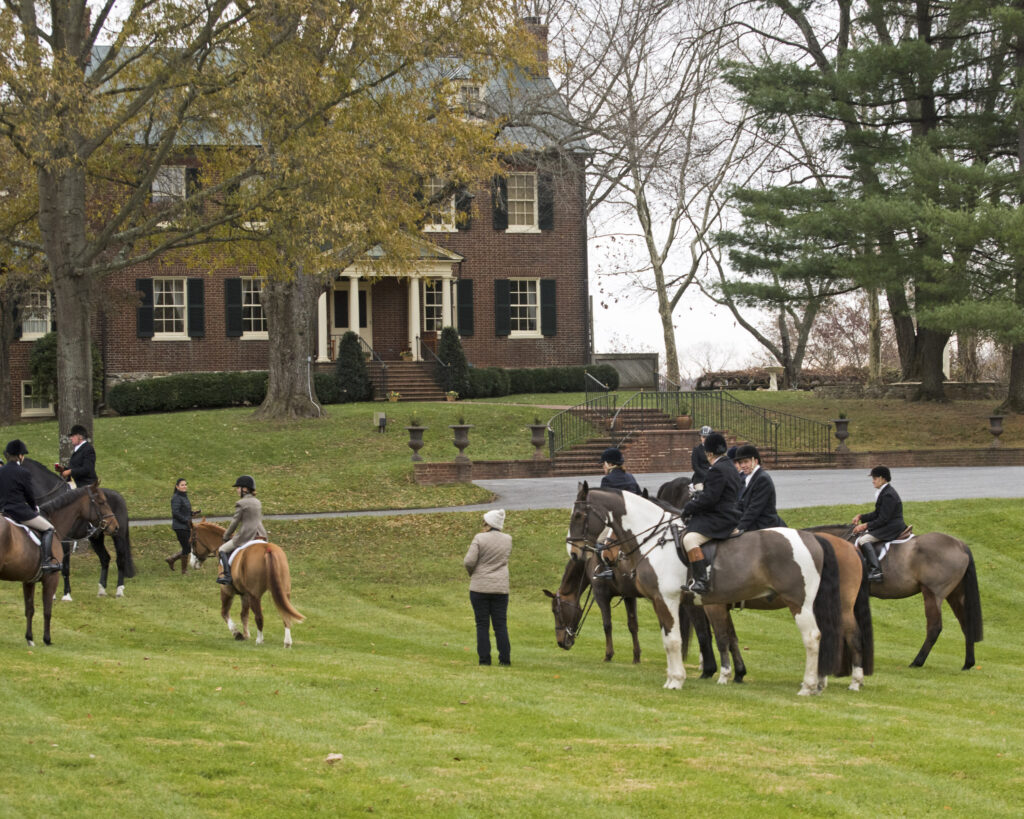
“We were living in upstate New York and Zohar wanted to hunt more often. So, we moved to Virginia for better weather, bought the farm in 1985, and since 1989, have hosted a hunt breakfast on the property – every year except 2020 because of COVID,” Lisa explains. Zohar has hunted with the Middleburg Hunt, Piedmont, Orange County, Loudoun, and Old Dominion.
The brick house at Kinross dates to 1837 and breakfasts were first held there. But the house was not large enough for the number of guests they invited, so Zohar built another complex on the farm that could accommodate additional guests. Lisa added, “For decorations, I picked different flowers depending on what linen colors I decided to use. Being originally from New Orleans, it became a tradition to serve jambalaya and horse-shaped cookies.”
At Kinross, people begin arriving around 9:30 a.m., and the meet kicks off with a stirrup cup of port or sherry. By 10 a.m., the hunt takes off. After hours of hunting, breakfast usually starts at 1 p.m.
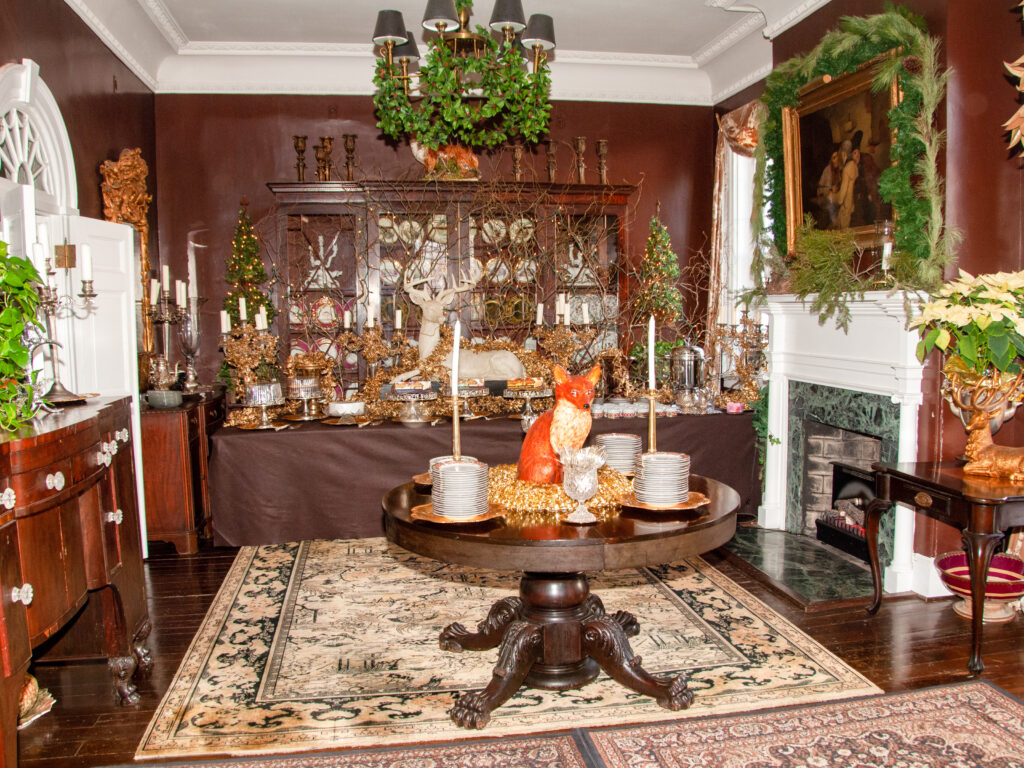
Last year, the Ben-Dovs decided to have the breakfast outside and hosted it in the field. The menu included wonderful hot soups, ham biscuits, and sandwiches, and a full bar. Lisa recalls, “It was great! Everyone loved it. This year, I’m having it outside again.”
Another popular hunt breakfast is hosted the Saturday after Thanksgiving at Welbourne. Dulany Morison continues Piedmont’s long tradition of hosting at Welbourne, which sits on 520 acres that are protected in a conservation easement with Virginia Outdoors Foundation. But theirs is an evening affair, a cocktail dinner complete with Hunt Country attire.
When hounds come in around 2 p.m., riders take their horses home and get ready for the evening before returning. Bartenders are on the porches. Servers offer ham biscuits to start. Then there is a formal buffet spread in the dining room which includes beef tenderloins, sliced ham, and mashed potatoes. “We keep the menu pretty traditional,” Dulany adds. “And there’s always roaring fires in every fireplace. I also recall an old photo of children sitting on the stairs at Welbourne with dinner plates on their laps.”
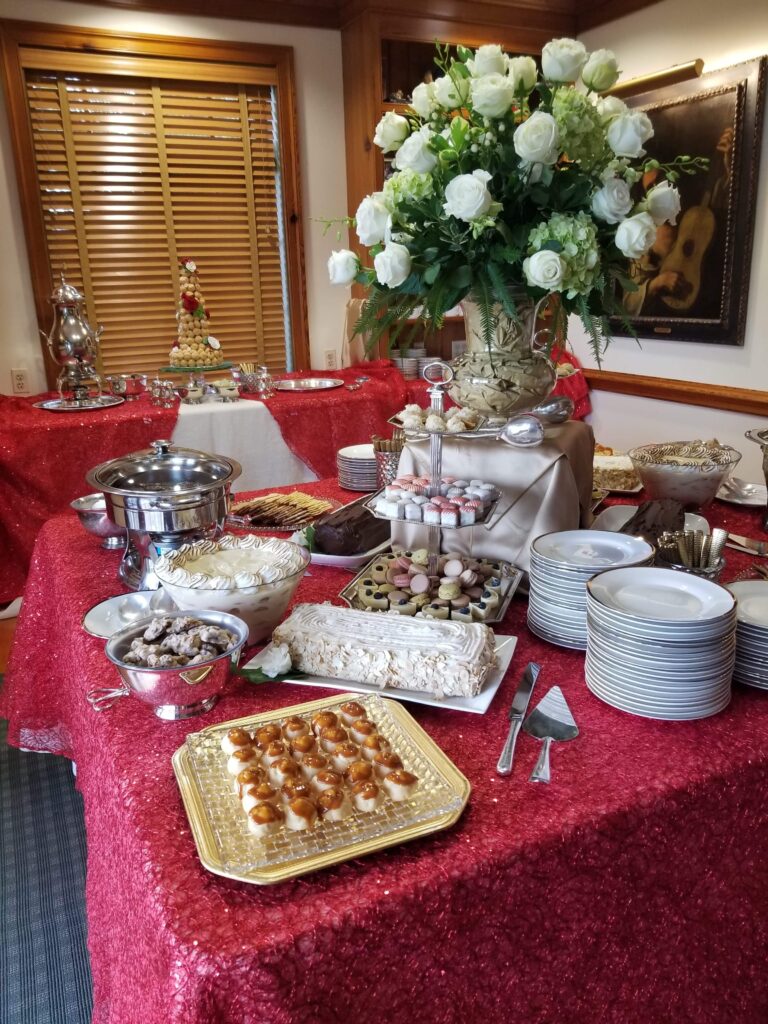
“It’s a chance to interact with some of the landowners and riders to toast their ‘hopefully’ successful day,” Dulany says. “It’s a camaraderie-building occasion that benefits rider and landowner alike; it ties everyone together in support of the landscape. There’s a driving force and motivation to preserve the territory for fox hunters. And it’s trickled down to others who support the industry in so many ways: those who provide horse care, feed, equestrian supplies, caterers, designers, etc. There are so many layers. Some of the most passionate enthusiasts are those who are doing a lot of the work. They take great pride in it.”
Dulany and his wife, Eleanor, also subscribe to Orange County Hounds, and Eleanor is a steward on the OCH board. Since 2015, the Morisons have hosted a breakfast at their Stoke Farm in OCH territory. “We host it closer to Christmas, so everything is decorated for the holidays,” Dulany says. Stoke’s 285 acres are protected under conservation easement with Virginia Outdoors Foundation.
These breakfasts include hearty fare, live fires, and festive drinks – mostly red wine or bourbon is consumed, but there’s always a full bar. Dulany adds, “With these breakfasts, the host is thanking their fellow hunters and neighboring landowners for allowing the use of their land, and they serve as a venue for inviting others.”
Another local foxhunter, Rose Marie Bogley, has hosted her share of hunt breakfasts at her Upperville estate Peace and Plenty at Bollingbrook. She hunted with Middleburg Hunt from 1975 to 1985. In 1985, she moved to Bollingbrook where she has hosted breakfasts for Piedmont for over 30 years. Her estate includes a grand manor house that dates to 1809 on 400 acres, with 365 of those acres in a conservation easement with the Land Trust of Virginia.
Hunts usually start around 9 a.m. Before the pandemic, she hosted it as close to Christmas as possible. “I’ve been doing this for a long time,” Bogley shares. “During the breakfast, horses can be put in stalls since there are several on the property. We had valet parking and gave people rides up to the house. There’s a healthy crowd of about 100 at a time, people coming and going. It got bigger each year.”
Last time Bogley hosted, she served chili. “I found this wonderful recipe in a cooking magazine called Bourbon Chili; it was the best, everyone loved it,” she remembers. “It cooked all night, and at four o’clock in the morning, I’d come downstairs and could smell it. We had corn muffins too, along with ham, salads, and a big dessert table. I’m from Pennsylvania and my sister knew someone there who made really good nut rolls. We had a full bar – actually, two bars – and bartenders.”
Dulany sums up the significance of the hunt breakfast perfectly: “It’s a happy time during a cold season, and it’s a great way to celebrate a day of sport. Instilling this interest into the next generation is key on everyone’s mind in the fox hunting world. Hopefully, it will be kept alive for future generations.”
We can all toast to that. ML
This article originally appeared in the November 2022 issue.








